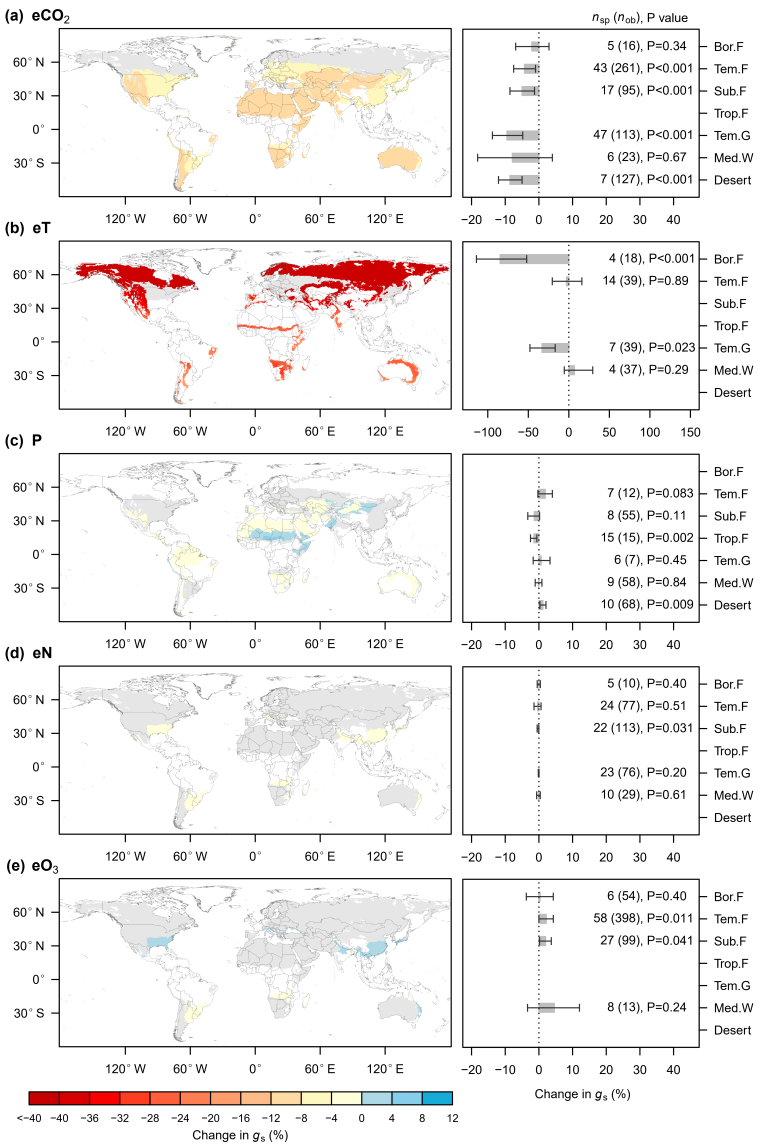

A research team led by Professor YE Qing at the South China Botanical Garden (SCBG) of the Chinese Academy of Sciences (CAS) has shed light on the impact of various global change factors on stomatal conductance in land plants. The study, titled “Stomatal responses of terrestrial plants to global change,” was recently published in Nature Communications.
The team found that elevated CO2, warming, decreased precipitation, and increased tropospheric ozone all led to a reduction in stomatal conductance, while increased precipitation and nitrogen deposition led to an increase. However, the effects varied depending on the treatment magnitude, plant attributes, and climate.
The team also found that combinations of two global change factors (except for warming and nitrogen deposition) significantly reduced stomatal conductance. The effects of individual global change factors were generally additive, but as effect sizes increased, they tended to be antagonistic (meaning the combined effects of two factors were less than the sum of their individual effects).
Moreover, the team discovered that rising CO2 and warming would dominate future changes in stomatal conductance worldwide, with the other global change factors having a relatively small effect.
"Global change factors do not occur in isolation in the real world. This study shows how global change factors affect stomatal conductance individually and interactively, providing a basis for understanding and predicting stomatal conductance in the future," said Dr. LIANG Xingyun, the first author of this study.
For more information, please visit https://doi.org/10.1038/s41467-023-37934-7.


